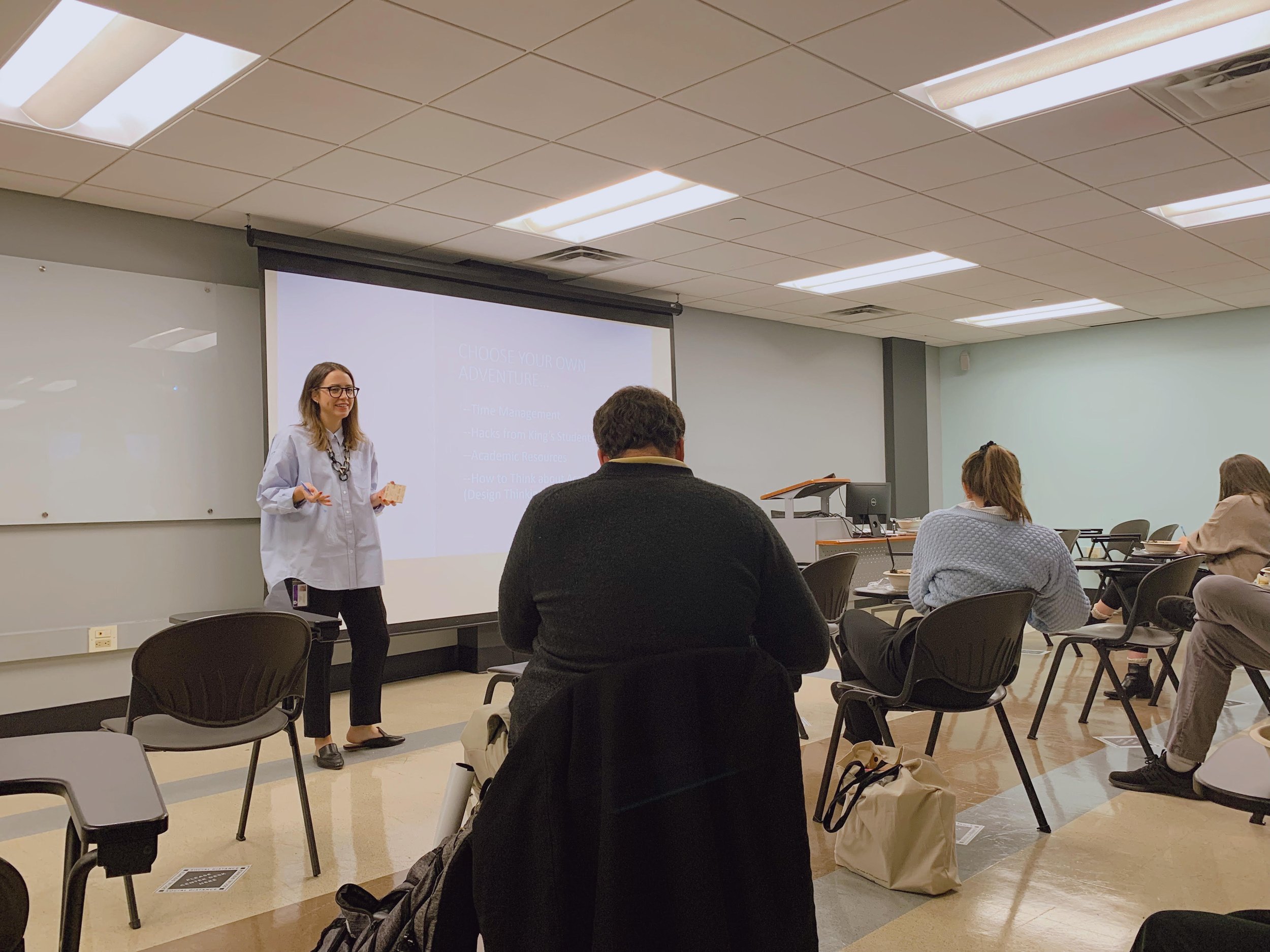Jennifer Tharp Presents Time Management Tips and Academic Resources
| Photo by Myrian Garcia
Student Success hosted an academic self-care opportunity for King’s students on Thursday, Nov. 4. Jennifer Tharp, Assistant Dean of Student Academic Services and Director of Student Success, expressed her desire to help students feel less overwhelmed post-midterm week.
Tharp began by passing out three sticky notes to each student, asking them to write down different academic-related stressors. Sorting them into categories of likeness, Tharp read the responses aloud:
“Long readings, getting a bad grade after studying hard, balancing school, work, and personal life, major projects due the same week, and stacked exams.”
Since a large portion of the sticky notes belonged to the category of time management, the focus of the event revolved around that topic.
“Does anyone have a time management method that you already love?” Tharp asked the group.
“I have a by-the-half-hour spreadsheet. It is thirty-minute increments of my day and what I need to be doing at each time,” Kiera Williams, student in the House of Ten Boom, said. “It helps because I have to plan for a lot of things: two jobs, six classes and a lot more things. From my freshman year, I needed to know clearly how to use my time.”
Brandon Orr, student in the House of Bonhoeffer, finds such a method practical yet too restricting for his own life.
“For me, I need to have a little more leeway to fit things in,” Orr said. “I also like to challenge myself to see how much I can remember without using tools.”
Different time management methods work for different people. Some are capable of having a photographic memory and do not need to make a schedule while others need to write it all out.
“There truly are so many different ways of managing time,” Tharp said.
Tharp presents a sample Google Calendar for all to see how she would manage her weekly schedule. First, Tharp graphs what she calls “fixed time elements'' which may include church, events, classes and deadlines. With the knowledge of fixed elements, Tharp introduced the method of “time blocking” to manage the workload needed to meet school deadlines.
“How much time would it take to prepare for this quiz?” Tharp asked as an example for blocking a specific amount of time dedicated to studying.
After a few more tips on time management, the conversation shifted to stress itself, and how to handle it.
“There is some level of stress that is inherent in being a scholar in the world. There is always more that we can read,” Tharp said.
“I think there is good stress and bad stress,” Orr said. “I would definitely say that stress before a test makes you more attentive and focused, which is good. But if it makes you blank out then it is bad stress.”
Tharp calls this “good stress” performance anxiety. Not many people would consider themselves good test-takers. However, the grades on the line while taking a test will help encourage students to do their best.
Having worked with many students over the years, Tharp understands that school at King’s is in no way easy. However, discipline and discernment are key to success. Above all, Tharp encouraged the audience to learn from failure and accept it.
“There are very few situations in life that we can’t come back from. I find that very helpful,” Tharp said.
If you are a student at The King’s College and are in need of advising, accommodations, tutoring or coaching, get in touch with the Students Success Team who are available and willing to help. Dr. Jennifer Tharp reminded students that her office door is always open to anyone who needs assistance or wants to talk.

